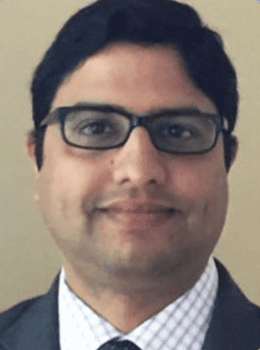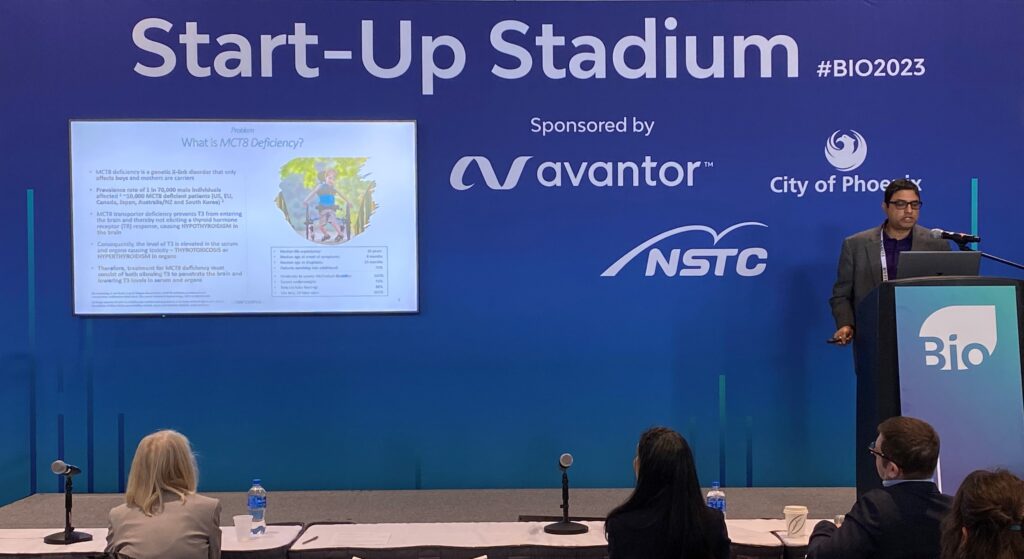Out of the University of Miami, the industry’s first investigator-initiated emergency trial treating a pregnant mother has been authorized by the U.S. Food and Drug Administration (FDA) and is shedding new light on the rare orphan disease space.
Following the 2023 Biotechnology Innovation Organization (BIO) International Convention in Boston, the Seed-Stage Start-Up Stadium winner, PriZm Therapeutics, a late-stage clinical biotech company with a focus on rare pediatric orphan diseases, was announced.

Bio.News had the opportunity to catch up with one of PriZm’s cofounders and CEO, Dr. Kiran Avancha, who presented the company’s current research as part of the BIO’s Start-Up Stadium.
Dr. Avancha has a background in pharmaceuticals and 20 years of experience in drug development and clinical research. He credits the collaborative efforts with his fellow cofounders on the successful launch of PriZm Therapeutics in 2020. The company’s intention to bridge the gap between academic medicine and industry began with its lead asset, SRW101.
As a synthetic T3 analogue, SRW101 is a novel small molecule, also known as diiodothyropropionic acid (DIPTA). Its mechanism of action is similar to that of triiodothyronine (T3).
Dr. Avancha explains that his cofounders, Samuel Refetoff, M.D. and Roy Weiss, M.D., Ph.D., with their combined experience in the field of endocrinology, identified SRW101 as a potential treatment for MCT8 deficiency.
Allan-Herndon-Dudley syndrome (AHDS) or MCT8 deficiency was first described in 1944. It wasn’t until 1990 that it became one of the first syndromes to undergo genetic mapping.
Dr. Samuel Refetoff, from the University of Chicago, specializing in rare endocrine disorders, is the namesake of Refetoff syndrome (thyroid hormone resistance) and a Nobel Prize Nominee in 2014 for his contributions in the treatment of thyroid disease. Dr. Roy Weiss is the Chair of Medicine at the University of Miami, an endocrinologist, professor, and rare-disease expert in the field of pediatric endocrinology. Together, Drs. Refetoff and Weiss are world-renowned physician-scientists who have spent the past 30 years dedicated to research on MCT8 deficiency.
What is MCT8 deficiency?
Monocarboxylate transporter 8 (MCT8) deficiency is an X-linked genetic disorder resulting from a defective gene (SLC16A2). The consequence of this defect is a deficiency in this transporter. Without the transporter, thyroid hormone (TH), more specifically, triiodothyronine (T3) is unavailable in the brain during crucial periods of neonatal development.
As T3 is not available in the brain, it is elevated in the rest of the body which poses an interesting scenario when considering viable treatment options.
As an X-linked disorder, male newborns, whose mother carries the gene, may develop signs and symptoms, between 2-4 months, which include developmental delay, impaired speech, poor head control, decreased muscle strength, and spasticity.
There is no cure for these patients, which amount to approximately 1:70,000 males globally. Scientists suspect this number is greatly under-represented as many countries either lack methods for detection or symptoms are mistaken for cerebral palsy.
Patients diagnosed with AHDS are at increased risk for aspiration pneumonia, poor weight gain, failure to thrive, recurrent hospitalizations, and premature death with a median life expectancy of 35 years.
What is SRW101?
SRW101 has been successful in preclinical studies and was given under Compassionate Use as described in a multi-center report in 2012.
As of 2022, SRW101 began a Phase III, multi-center, double blind, randomized withdrawal study to compare T3 levels at the end of an 8-week period for patients randomized to SRW101 compared to those taking a placebo.
SRW101 crosses the blood-brain barrier (BBB) via an alternate transporter and induces the appropriate TH response in the brain while inhibiting its production in other organs. It also has the ability to cross the placental barrier, which is where PriZm Therapeutics is focusing their current efforts.
The anticipated Pivotal Phase III Trial endpoints of PriZm are multi-factorial and include significant improvements in metabolic, cardiovascular, and neurologic function as well as quality of life.
In response to the successful milestones of SRW101, the Pre-Investigational New Drug (PIND) Meeting with the FDA approved its first single patient IND study at the University of Miami in 2023, treating a pregnant mother of twin male fetuses with MCT8 deficiency.
Dr. Avancha relays his excitement regarding the IND study and the recognition as the 2023 seed-stage start-up winner, particularly in lieu of their fellow competitors and the extraordinary work they are all accomplishing in the biotech industry. “This is an opportunity for PriZm to bring awareness of AHDS and MCT8 deficiency to the scientific community and beyond.” Their current study is “creating a collaborative effort between academia and science with hopes to expand their rare disease programs into countries with little to no recognition and means.”
The IND study is offering a significant turn of events for families both suffering with and unknowingly carrying a rare genetic disease with no previous hope. Success, initially assessed via the mother during pregnancy, will be measured in her newborns as improvements in neurocognitive function that offer an improved quality of life.
The future of PriZm is within the orphan disease space in which success is built from collaboration between science and technology.
The Seed-Stage Start-Up Stadium prize
As the 2023 seed-stage start-up winner, PriZm is awarded fast-track admission in the Fall 2023 or Spring 2024 cohort of The Innovation Space’s Science Inc.™ Accelerator program and/or spotlight position in The Innovation Space’s monthly Spark Factory™ virtual event. Additionally, they will be considered for up to a $200k First Fund™ investment (residency in The Innovation Space required for First Fund investments).
Prizes also included
A blog posting by BIO including an interview about the start-up company’s status and mission written by BIO’s communications team and shared via BIO’s social media and listed on BIO’s website
A complimentary one-year membership in the Biotechnology Innovation Organization, including access to benefit from BIO Business Solutions®, the largest cost-savings purchasing program for the life sciences industry. And one complimentary registration with BIO One-on-One Partnering™ access to attend the 2024 BIO International Convention, June 3-6, in San Diego, California.




